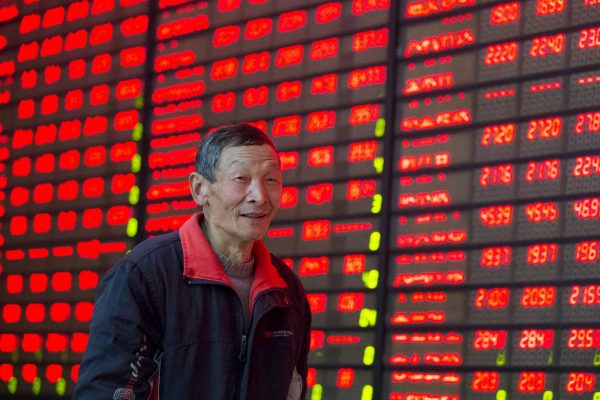Although China’s exchange rate system has been moving towards a market-determined one, it still lacks enough flexibility to be a true floating system. Similarly, China has made important progress on capital account liberalisation and internationalising the renminbi (RMB), but the process has taken some regressive steps, partly due to the worsened macroeconomic situation in recent years. And China’s large scale overseas investments have been hampered by its cross-border financial restrictions.
Amid all these challenges, should China continue to open its financial sector?
There are three reasons why it should. First, financial opening is an important condition by which sustainable growth can be achieved. Financial opening is conducive to financial innovation, which in turn facilitates economic growth. Second, financial opening is an important means by which a country can prevent systemic financial risks from occurring. This is because financial opening can introduce more advanced ideas for management, technology and rules. Third, financial opening is an important way of participating actively in the process of improving global economic governance. All the big agendas that China wants to implement require that China make its financial system more compatible with the international financial system.
There are a number of policy remedies which could improve China’s financial system.
First, China needs to improve coordination between financial and non-financial reform. Interest rates can only be truly market-determined if there are complementary reforms in other sectors such as state-owned enterprises. Similarly, the success of financial opening depends on whether overseas financial institutions can be granted true ‘national treatment’.
Second, China needs to let market forces do more work in determining financial market price signals. Beijing has a window of opportunity to do so now with exchange rates as the economy is relatively stable and expectations for RMB depreciation are gone as of the end of 2016.
Interest rate controls have continued to distort the behaviour of lenders and borrowers and have restricted competition among financial institutions despite the fact that China’s non-state banking sector has continued to increase its market share. Without a proper market mechanism that allows financial institutions to set prices according to the supply and demand of funds, banks and other financial institutions will not be efficient intermediators of funds.
Third, China needs to establish and develop a framework for managing cross-border capital flows at both micro and macro levels. At the micro level, capital flows should be freed from the influences of macro policy adjustment to enhance capital account liberalisation as well as to facilitate service trade investments and financial regulation. At the macro level, focus should be placed on maintaining macro stability by establishing a framework for managing capital controls (mainly as a temporary measure), reducing financial risks, improving the mechanisms for asset evaluations and continuing to use transaction taxes to dampen cyclical changes.
Fourth, China should grant foreign financial institutions ‘national treatment’ before entry and relax the ceilings on foreign institutions’ shareholding of domestic institutions, which would provide foreign capital with an open and fair competitive environment.
Fifth, China should open the market for credit ratings, clarify the taxation issues for foreign investors investing in China’s bond markets and improve its financial infrastructure. This would help to narrow the gap between the market rules and practices in China compared with international standards.
Six, China should aim to establish and develop a comprehensive system for providing financial services taking advantage of the opportunities in domestic industrial upgrading and the Belt and Road Initiative. This would help improve the breadth and depth of China’s cross-border financial transactions and cooperation, including those with capital markets in developed countries and international financial centres.
Finally, for market forces to work effectively in the financial sector, China needs to address the issue of financial market fragmentation by integrating the formal and informal financial sectors. Substantial differences still exist between the interest rates charged by official and informal lenders as well as between the ability of state and private borrowers to access bank loans.
This fragmentation creates major problems elsewhere — for example, interest rate bias towards lending to the state sector has tended to reduce the net worth of non-state enterprises (who have to pay much higher interest rates) and has hampered their prospects to become creditworthy borrowers.
Furthermore, market fragmentation is a major obstacle standing in the way of creating private markets for capital. The lack of development of broader capital markets reinforces the role of state-bank dominated financing and its related investment patterns.
This highlights the importance of continuing to develop a non-state banking sector to meet the needs of the large pool of unsatisfied borrowers. Only when prices reflect the true economic scarcity of financial resources can resources including foreign capital be channelled into the most profitable investment opportunities and systemic financial risks can be reduced. The further development of the real economy therefore depends on the reform of the financial sector.
With the rollback of quantitative easing, financial markets are about to sail into the unknown. If China wants to weather this time of uncertainties, it will need well-functioning interest and exchange rates, a level playing field for foreign entrants and a non-fragmented financial market. It had better get serious about deepening reform.
Ligang Song is Associate Professor and Director of the China Economy Program at the Crawford School of Public Policy of the Australian National University.
This article is based on The China Finance 40 Forum Report (2017) China’s Financial Opening Policy in a Time of De-Globalization.


“Reform,” in this context, means ‘become more like us’.
China is succeeding because it’s not like us.